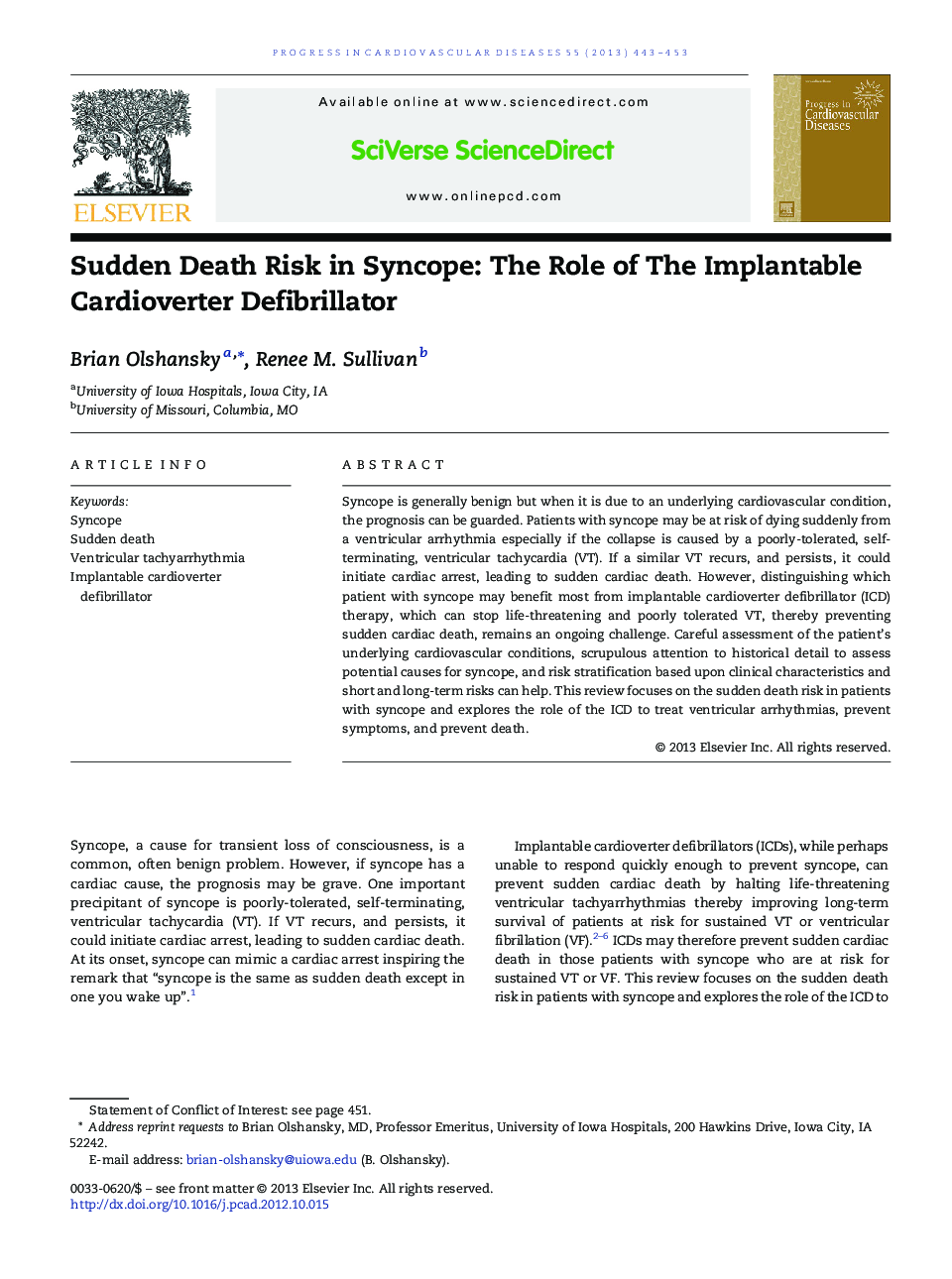| Article ID | Journal | Published Year | Pages | File Type |
|---|---|---|---|---|
| 3006502 | Progress in Cardiovascular Diseases | 2013 | 11 Pages |
Syncope is generally benign but when it is due to an underlying cardiovascular condition, the prognosis can be guarded. Patients with syncope may be at risk of dying suddenly from a ventricular arrhythmia especially if the collapse is caused by a poorly-tolerated, self-terminating, ventricular tachycardia (VT). If a similar VT recurs, and persists, it could initiate cardiac arrest, leading to sudden cardiac death. However, distinguishing which patient with syncope may benefit most from implantable cardioverter defibrillator (ICD) therapy, which can stop life-threatening and poorly tolerated VT, thereby preventing sudden cardiac death, remains an ongoing challenge. Careful assessment of the patient's underlying cardiovascular conditions, scrupulous attention to historical detail to assess potential causes for syncope, and risk stratification based upon clinical characteristics and short and long-term risks can help. This review focuses on the sudden death risk in patients with syncope and explores the role of the ICD to treat ventricular arrhythmias, prevent symptoms, and prevent death.
